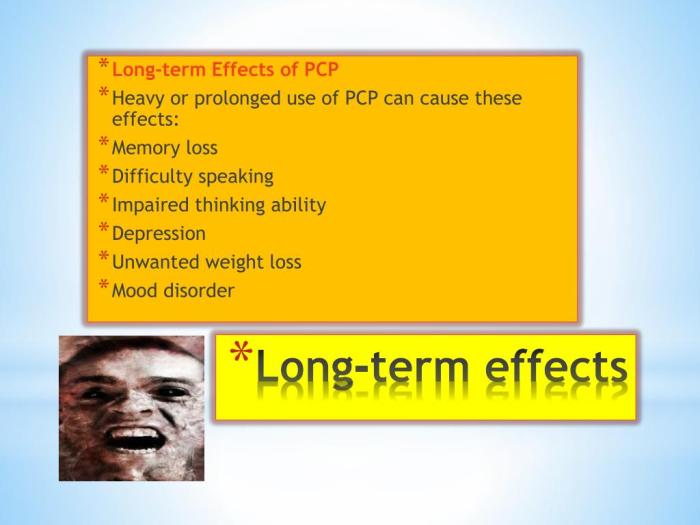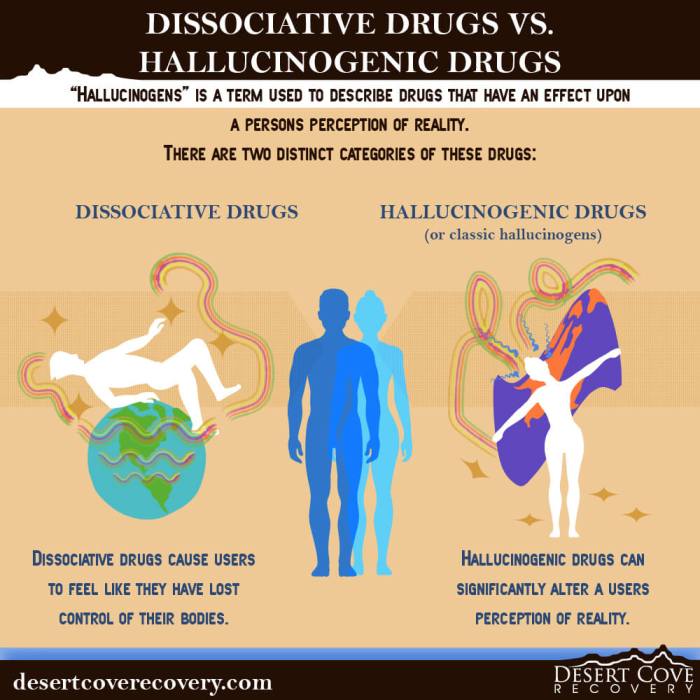Hallucinogens long term effects brainly: Delving into the profound and multifaceted impacts of hallucinogens on the brain and human experience, this comprehensive exploration unravels the complexities of these substances, shedding light on their enduring consequences.
From neurological alterations to psychological transformations and behavioral shifts, this narrative delves into the intricate interplay between hallucinogens and the human mind, revealing the profound effects they can exert over time.
Long-Term Effects of Hallucinogens on the Brain: Hallucinogens Long Term Effects Brainly

Hallucinogens are a class of psychoactive drugs that alter perception, mood, and thought. While the short-term effects of hallucinogens can be pleasurable, long-term use can have significant consequences for the brain and overall health.
Neurological Impacts
Hallucinogens can have lasting effects on brain structure and function. Studies have shown that chronic use of hallucinogens can lead to:
- Reduced brain volume in areas responsible for memory, attention, and decision-making
- Impaired cognitive function, including deficits in memory, attention, and problem-solving
- Increased risk of psychosis, including hallucinations, delusions, and disorganized thinking
These effects are believed to be caused by the way hallucinogens interact with neurotransmitters, particularly serotonin and dopamine, which play a crucial role in mood, perception, and cognitive function.
Psychological Effects
In addition to neurological impacts, hallucinogens can also have significant psychological effects. Long-term use has been linked to:
- Anxiety and depression
- Mood disorders, such as bipolar disorder and schizophrenia
- Flashbacks, which are sudden and unexpected recurrences of hallucinations or other psychedelic experiences
- Persistent perceptual disturbances, such as visual distortions or auditory hallucinations
These psychological effects can be debilitating and interfere with daily life, relationships, and work performance.
Behavioral Changes
Hallucinogen use can also lead to behavioral changes, including:
- Social withdrawal and isolation
- Aggression and violence
- Impulsivity and impaired decision-making
- Disrupted social and occupational functioning
These behavioral changes are often a result of the cognitive and psychological effects of hallucinogens, which can impair judgment, self-control, and social interactions.
Health Risks, Hallucinogens long term effects brainly
Long-term hallucinogen use can also pose significant health risks, including:
- Cardiovascular problems, such as heart palpitations and high blood pressure
- Liver damage
- Respiratory issues
Hallucinogens can also interact with other drugs and medications, potentially leading to dangerous side effects or overdose.
Helpful Answers
What are the potential neurological effects of long-term hallucinogen use?
Hallucinogens can lead to structural and functional changes in the brain, potentially impairing cognitive abilities, memory, and increasing the risk of psychosis.
Can hallucinogens cause persistent psychological effects?
Yes, long-term use can lead to anxiety, depression, mood disorders, and flashbacks or other perceptual disturbances.
How do hallucinogens impact behavior?
Hallucinogens can cause social withdrawal, aggression, and impaired decision-making by disrupting neurobiological mechanisms.

